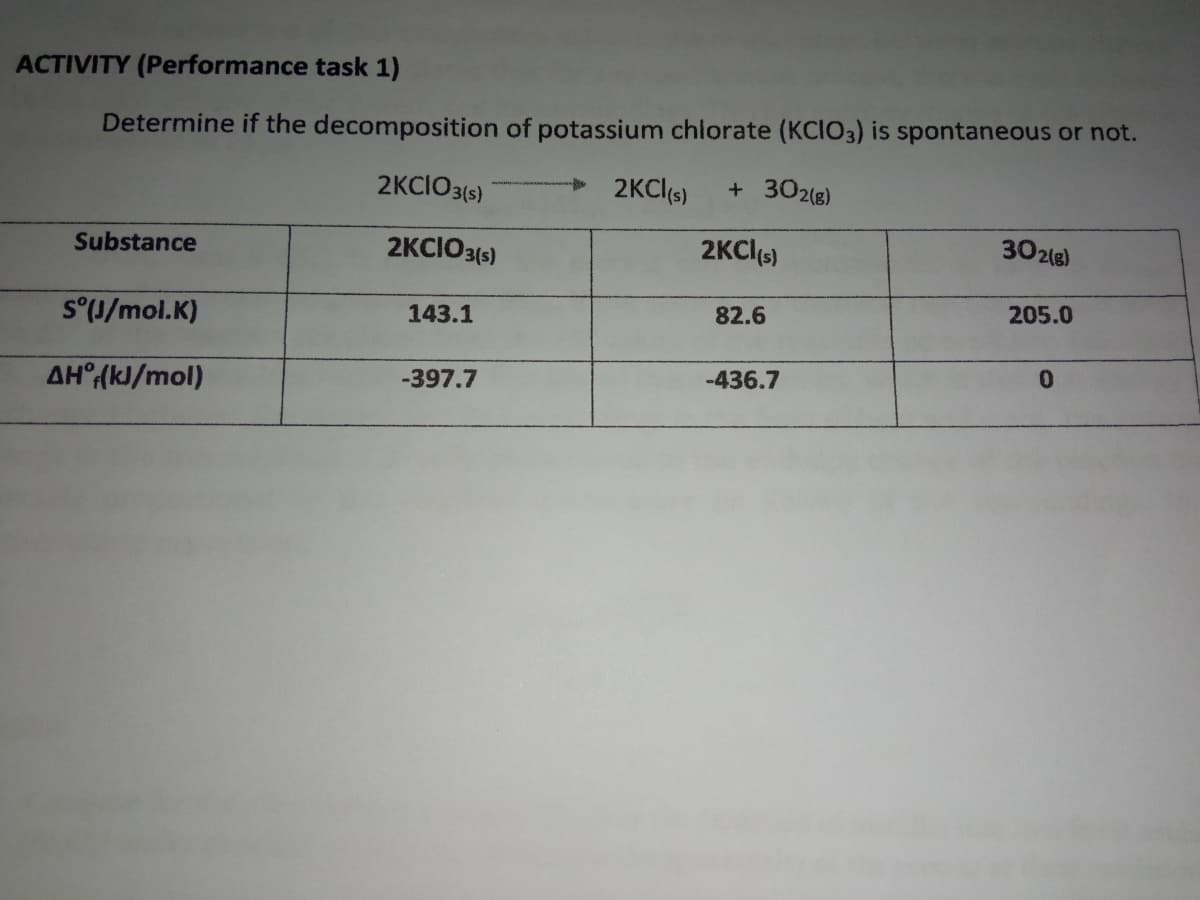Performance task 1) ermine if the decomposition of potassium chiorate (KCIO3) is spontaneous or not. 2KCIO3(s) 2KC((s) + 302(8) 2KCIO3(5) 2KCI9) 302(8) nce 82.6 205.0 J.K) 143.1 -436.7 nol) -397.7
Performance task 1) ermine if the decomposition of potassium chiorate (KCIO3) is spontaneous or not. 2KCIO3(s) 2KC((s) + 302(8) 2KCIO3(5) 2KCI9) 302(8) nce 82.6 205.0 J.K) 143.1 -436.7 nol) -397.7
Chemistry by OpenStax (2015-05-04)
1st Edition
ISBN:9781938168390
Author:Klaus Theopold, Richard H Langley, Paul Flowers, William R. Robinson, Mark Blaser
Publisher:Klaus Theopold, Richard H Langley, Paul Flowers, William R. Robinson, Mark Blaser
Chapter16: Thermodynamics
Section: Chapter Questions
Problem 20E: What is the difference between S, S , and S 298 for a Chemical change?
Related questions
Question

Transcribed Image Text:ACTIVITY (Performance task 1)
Determine if the decomposition of potassium chlorate (KclO3) is spontaneous or not.
2KCIO3(s)
2KC((s)
+ 302(8)
2KCIO3(s)
2KCl(s)
302(8)
Substance
82.6
205.0
S°(J/mol.K)
143.1
-436.7
0.
AH°{kl/mol)
-397.7
Expert Solution
This question has been solved!
Explore an expertly crafted, step-by-step solution for a thorough understanding of key concepts.
Step by step
Solved in 2 steps with 1 images

Knowledge Booster
Learn more about
Need a deep-dive on the concept behind this application? Look no further. Learn more about this topic, chemistry and related others by exploring similar questions and additional content below.Recommended textbooks for you

Chemistry by OpenStax (2015-05-04)
Chemistry
ISBN:
9781938168390
Author:
Klaus Theopold, Richard H Langley, Paul Flowers, William R. Robinson, Mark Blaser
Publisher:
OpenStax

Chemistry by OpenStax (2015-05-04)
Chemistry
ISBN:
9781938168390
Author:
Klaus Theopold, Richard H Langley, Paul Flowers, William R. Robinson, Mark Blaser
Publisher:
OpenStax